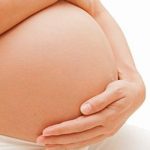Pregnancy transforms women’s bodies in many obvious ways, but new research suggests it may also accelerate aging.
Women who had been pregnant appeared to be biologically older than women who had never carried a child, the genetic analysis revealed.
Further, more pregnancies meant more aging.
“Our findings suggest that pregnancy speeds up biological aging, and that these effects are apparent in young, high-fertility women,” said lead researcher Calen Ryan, an associate research scientist with the Columbia University Aging Center in New York City.
“Our results are also the first to follow the same women through time, linking changes in each woman’s pregnancy number to changes in her biological age,” Ryan added in a university news release.
For the study, researchers tracked the health of more than 1,700 young people in the Philippines.
Prior studies have found that very fertile women suffer in health and longevity as they age. However, it’s not known whether pregnancy affects health earlier in life, before age-related declines become apparent, researchers said.
To examine this, the investigators used advanced genetic techniques to determine the cellular aging of the participants in the study.
These “epigenetic clocks” let researchers study aging earlier in life and to track people’s biological age as compared to their chronological age.
The relationship between a woman’s number of pregnancies and her biological age persisted even after taking into account other contributors to accelerated aging, researchers said. These other factors included social and economic status, smoking and genetics.
Meanwhile, men showed no accelerated aging related to the number of pregnancies their partners had.
This indicates that something specific about pregnancy or breastfeeding accelerates biological aging, the researchers concluded.
The findings were published April 8 in the Proceedings of the National Academy of Sciences.
Why might pregnancy speed aging in a woman?
Pregnancy as a young adult can be particularly hard on the body of a woman who’s still developing, Ryan noted.
“Many of the reported pregnancies in our baseline measure occurred during late adolescence, when women are still growing,” Ryan explained. “We expect this kind of pregnancy to be particularly challenging for a growing mother, especially if her access to healthcare, resources or other forms of support is limited.”
Future research should investigate more closely why pregnancy might accelerate aging, and whether that will impact the health of women in old age, Ryan added.
Researchers “do not know the extent to which accelerated epigenetic aging in these particular individuals will manifest as poor health or mortality decades later in life,” Ryan noted.
More information
Northwestern Medicine has more on biological versus chronological age.
SOURCE: Columbia University, news release, April 8, 2024
Source: HealthDay
Copyright © 2026 HealthDay. All rights reserved.
















